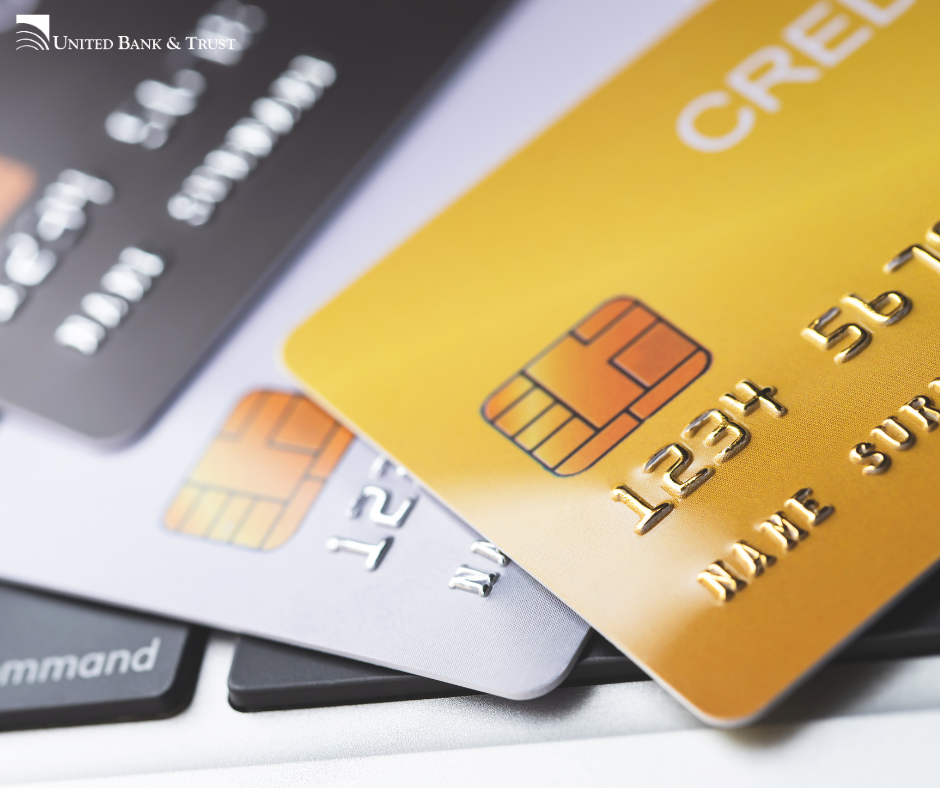The Dos and Don'ts of Your First Credit Card
Posted
on Tuesday, March 5, 2024
in
Financial Education
Getting your first credit card can be an exciting moment. It’s a significant financial milestone that represents financial independence and responsibility. If not used carefully, however, they can also lead to financial pitfalls.
“A credit card is a tool for responsible financial management, not a ticket to unlimited spending,” said Sarah Gerstandt, Assistant Vice President and Retail Banking Officer. “If you use it wisely, you can start building a credit history that can put you on the path to a strong financial future. If you use it recklessly, it can become a roadblock on your journey to financial success.”
To help you make the most of your first credit card experience, here are the dos and don’ts you should follow when using your first credit card.

- Do apply for a credit card early. Most experts agree that you should apply for your credit card as soon as you are old enough at age 18. This allows you to start building a credit history right away, which can help when you need to apply for a loan later in life.
- Do your research. One of the biggest mistakes you can make when getting your first credit card is not doing research. Choosing the wrong credit card can result in unnecessary fees, high interest rates, and missed reward opportunities. Compare different credit card options to find a card that fits your financial goals and spending habits.
- Don’t ignore the fine print. Understanding the terms and conditions of your credit card will help you use it more responsibly. Pay close attention to the interest rates, grace period, minimum payment requirements, and any additional fees you may incur.
- Don’t overextend yourself. Once you start using your credit card, don’t buy more than what you will be able to pay back each month. Try to use it on a couple of small items each month so you can build a history of paying off your balance. If you charge more than you can afford in a given month, you may be forced to carry a balance. This balance will then incur interest and cost you more to pay off. It can also cause serious damage to your credit score.
- Do pay your bill on time. Missing payments or paying late can result in large fees and cause harm to your credit score, making it more challenging to secure loans or favorable interest rates in the future. Most credit cards offer the option to set up automatic payments. Set up this tool right away to make sure you always pay your bill on time.
- Don’t apply for multiple credit cards at one time. Applying for too many credit cards at once can hurt your credit score, as each application will trigger an inquiry on your credit report. Multiple inquiries can potentially drop your credit score. That’s why you should do your research ahead of time and know what type of card you want to use, then only apply for cards that fit your needs.
- Do monitor your credit. Checking your credit report annually is the best way to ensure you haven’t become a victim of identity theft or that errors haven’t been made on your credit history. You can access a free report by visiting AnnualCreditReport.com or by calling (877) 322-8228. Check your report each year for inaccuracies. As you build your credit history, you may also want to consider using a credit monitoring service, such as ID TheftSmart™, to stay updated on any changes.
- Don’t treat credit cards like free money. Anything you charge on your credit card is essentially a loan that must be paid back. Treating credit cards like free money can lead to reckless spending and mounting debt that will make it challenging for you to find housing or be approved for loans in the future.
Getting your first credit card is a significant step in your financial journey. Avoiding common mistakes with your credit cards – whether it’s your first card or your fifth – is essential to building a healthy credit history and achieving financial stability.
To learn more about United Bank & Trust’s credit card options, visit our website or call us at (641) 753-5900.